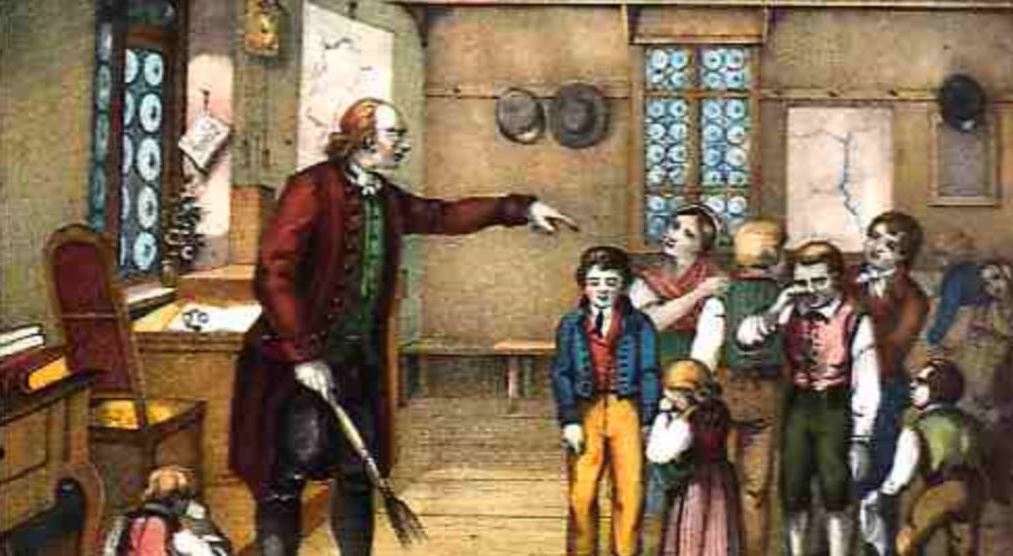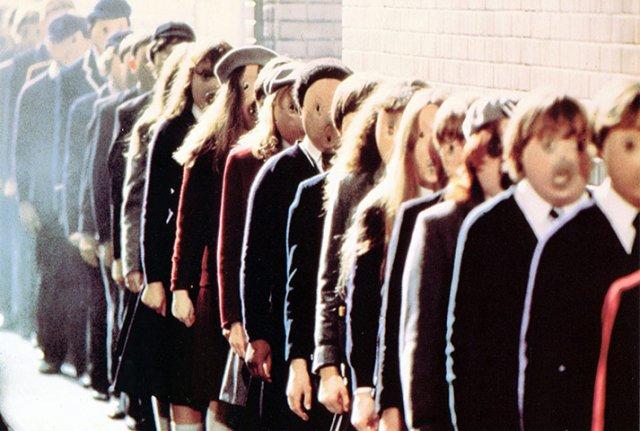K.D.Ushinsky is a famous teacher who created the foundations of Russian pedagogy. He lived in 1824-1873. and became the author of numerous works in the field of learning science. Ushinsky's contribution to pedagogy was manifested both in Russia and abroad - in many countries of the world. Until today, excerpts of his works are cited in scientific studies.
Biography
A brief biography of Ushinsky originates in Tula in 1824. In February of that year, Konstantin Dmitrievich was born in a family of small noblemen. His childhood years passed in a family estate near the city.
In 1840 he became a graduate of the Novgorod-Seversky Gymnasium. Immediately after this, the future leader in the field of pedagogy KD Ushinsky entered Moscow University. He chose the faculty of law. As he claimed, it was during this period of time that he decided on his own specialization - he was attracted to teaching.
At the end of the main course in 1844, he continued his activities in the educational institution, preparing to receive a master's degree. In the same year he gains a Ph.D. And two years later, Ushinsky is already acting professor at the Demidov Lyceum in Yaroslavl.
Conflicts
But soon Ushinsky with pedagogical ideas, which subsequently glorify him all over the world, comes into conflict with the leadership on the basis of the teaching style, and his resignation occurs. It happened in 1849.
Konstantin becomes an inspector at the Gatchina Orphan Institute. In parallel, he occupies the same position at the Smolny Institute for Noble Maidens. It is noteworthy that both there and there, he changes the style of teaching, and its effectiveness increases. But the leadership is again dissatisfied with the innovations of the young teacher. In 1862, he was dismissed from the Smolny Institute. He was sent on a long trip abroad, citing as an excuse his study of the theory of teaching in other states.
According to Ushinsky, he considered this trip a link. But managed to benefit from this event.
He really began to study the educational systems of the countries of the world. As a result, he wrote several articles at once, in which the features of Ushinsky's pedagogical ideas are clearly traced. In addition, he has published several books. In 1867 he returned to his homeland, where he began work on the third volume of the book "Man as a subject of education." Despite the fact that he could not finish what he had begun, he managed to make a serious contribution to the development of education in Russia. He lived for 47 years, died in 1870.
Teachings
The main essence of Ushinsky's pedagogical ideas was democracy in the field of teaching. He argued that the basis of training should be philosophical, psychological, physiological characteristics of people. He stated that in the field of teaching, in no case should you rely solely on your own, albeit successful, experience. Theory must be accompanied by practice.
In addition, talking about the benefits of pedagogical literature, Ushinsky noted that a theory without foundation is useless. A theory without practice means nothing. In no case can she deny reality.
Konstantin noted that in upbringing and teaching, it is imperative to take into account the distinctive features of nationality, geographical and historical nuances. The nationality, according to Ushinsky, is manifested in respect for their own national language, the history of their statehood. Such upbringing, in his opinion, should instill patriotism in the younger generation, inspire national pride. At the same time, one cannot rush to extremes - he denied chauvinism. Respect, according to Konstantin, should be shown in relation to other nationalities.

He defined upbringing as a conscious process of building a person’s personality with a focus on harmony. He assigned the most important place in teaching to the development of moral principles in students. He stated that the main goal of education is the development of morality. Proclaimed personal qualities as something more valuable than the presence of knowledge in the head. In addition, in the development of morality, he invested instilling in students discipline, humanity, and diligence. He noted self-esteem, modesty.
Educational facilities
In their role, according to Ushinsky, the example of the teacher, his tactful behavior, directly acts. Be sure to include encouraging and preventive measures in the educational process. The leadership of the educational institutions were unhappy with Konstantin, since he denied the traditional discipline that was prevalent in any school of previous years. Then the students blindly obeyed the teachers, and the training included physical punishment. Ushinsky proclaimed humanity as the basis of the educational process.
Proceedings
It is noteworthy that even centuries after the death of the great teacher, his works are published. The book "Children's World. A reader ”continues to be very successfully published and bought throughout Russian territory. She is considered one of the most popular collections. In the book “Children's World. Reader ”contains the best works ever selected by Ushinsky, ever written for people aged 6-13 years.
Ushinsky’s educational book, The Motherland, was published from 1864 until the revolution. These were textbooks for young people. The lessons were accompanied by stories, tales of Ushinsky, tongue twisters, proverbs.
In choosing works for this collection, the author was guided by the principles subsequently enshrined in most Russian children's poets. These verses have almost no epithets, but they are filled with verbs. Due to this feature, such works are easy to use in games for children.
In the second part of Ushinsky’s Native Word, there are many informative articles authored by the great teacher himself. They become more complicated over time, leaving a student with a fairly complete picture of reality.
Innovative ideas about the educational process of Ushinsky appeared in additions to the main material. He constantly mixes the presentation of new topics with poems, short stories, tales and riddles. Business articles are written in a simple and rigorous syllable. It is believed that this teaches children to clarity of thought. Ushinsky actively encourages conversations with children, the presence of discussions in the classroom. The assignments in his textbook are filled with questions that encourage students to compare what they read with their own experience.
Artistic articles are written with emphasized emotionality, and this is also no accident. They are very busy with young students.
Articles
His articles containing the fundamental principles of pedagogy and numerous scientific works gained fame. His ideas, initially actively rejected by figures in the educational sphere, became widespread and influenced the further development of Russian pedagogy radically.
Memory
In 1946, in his honor was renamed Yaroslavl State Pedagogical University. K. D. Ushinsky - YAGPU. At present, it has nine faculties. Each year, he graduates approximately 3,000 teachers.
Requirements
The main requirement of this outstanding teacher was that from an early age students get acquainted with the works of oral folk art. Thanks to this, they became closer to folk culture, more loved and understood their native language. His demand was advanced, which was repeatedly expressed in scientific works - training must be built taking into account the individual psychological characteristics of children, which are inherent in them at different age periods. Teachers need to constantly study students again, and not blindly rely on their own experience, no matter how successful it is. It is important to recognize the student as he is - with all the shortcomings and advantages.

Ushinsky devoted especially much attention to psychological aspects in his writings. He believed that psychology provides a lot of knowledge that is simply necessary in the education of the younger generation. In addition, it is not enough just to know and own the laws of this science - it is necessary to constantly act in accordance with them. Creativity is important here to make it as effective as possible.
Historical merit
An important historical merit of the teacher was that he outlined the ideas that were advanced for his time, outlined the achievements of didactics of that time, including them in the theory of pedagogy. He collected many valuable instructions on how the attention of students develops, how to include their conscious memory.
Konstantin Dmitrievich also gave instructions on how to repeat the material passed so that it becomes part of the educational process and is remembered for a long time. Ushinsky argued that the material was repeated not with the aim of renewing the forgotten, but in order to prevent the very possibility that something would be forgotten. Each new step in the educational process is based on topics already covered.
In modern times
Today, educational reforms in the country are again relevant. Parenting issues are regularly reviewed. And many researchers believe that the experience of the past contains a lot of clues as to which way today will be the most relevant and effective, and will allow solving urgent problems in the educational sphere. And the central place here belongs to Konstantin Dmitrievich Ushinsky.
This is the central figure of Russian pedagogy. This is a children's writer for children, and a teacher for teachers. Each person has a definition of this figure will be his own.
It is known that Ushinsky himself as a specialist was significantly influenced by Granovsky, Redkin. He absorbed a lot of knowledge during his studies at the Lyceum. In his subsequent work, Ushinsky implemented what was conceived during the training, in practice. And it turned out that it was effective.
School Reform
Konstantin Dmitrievich advocated that public education be conducted by society, and schools should be based on “public initiative”. He considered labor the basis of the educational process, the most important factor in life.
From his point of view, the task of any teacher is to teach students to moral principles, and not to inspire them with a lot of knowledge. The very ability to intellectual work was assessed by him higher than the transfer of dry knowledge of the subject.
Ushinsky calls upbringing a part of art. He notes that theory is combined with practice.
Female education
Ushinsky became famous for his views on this issue. He noted that if you look at a woman as an equal person in any respect with a man, the outlook on her education is changing. A woman is a conductor of the "successes of the science of civilization", according to the great educator.
He noted that the teacher needs to understand the student, to think more directly about the purpose of the educational process. Everything in it is based directly on the personality of the teacher, since education comes only from living sources, personal examples. Not a single artificial institution, even with the most cunning system of education, is able to fulfill the same important role in the educational process as a person.
The teacher needs to have a supply of energy, to be able to produce it again and again, so as not to get bogged down in the monotonous teaching activity.
Ushinsky’s pedagogical ideas are not capable of losing their relevance today. They are still considered very significant, the modern educational system is based on them, although not everything is implemented in practice. The time has come for them to become a stepping stone, the foundation for subsequent innovations.